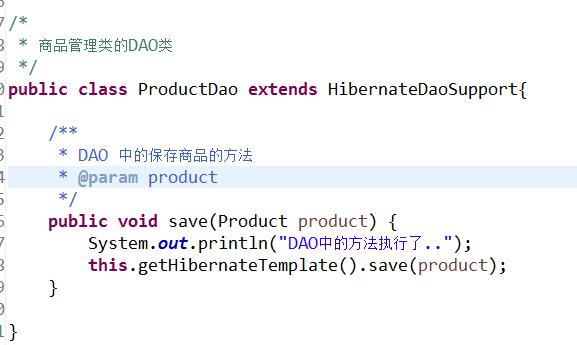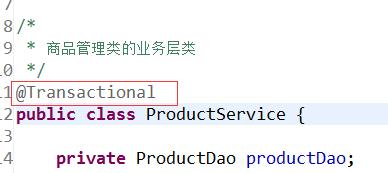SSH框架整合中的备忘记录
Posted Monkey_Hi 猴子喂
tags:
篇首语:本文由小常识网(cha138.com)小编为大家整理,主要介绍了SSH框架整合中的备忘记录相关的知识,希望对你有一定的参考价值。
整合ssh需要的jar包:
struts2-core.jar
struts2-convention-plugin-2.*.*.*.jar ------是struts2的注解开发jar包
struts2-spring-plugin-2.*.*.*.jar ------struts2用于整合spring的jar包
(spring中也有一个 spring-struts2的jar包,也是用来整合两个框架的jar包,引入其中一个可以)
Hibernate框架开发的响应的jar:
hibernate-core.*.jar
hibrenate目录下\\lib\\required\\*.jar
bibernate目录下\\lib\\jpa\\*.jar
日志相关记录: * slf4j整合log4j的jar包
以及数据库驱动包
spring框架开发的响应jar;
ioc:
spring-beans-*.*.*.release.jar
spring-context-*.*.*.release.jar
spring-core-*.*.*.ralease.jar
com.springsource.org.apache.log4j-*.*.*.jar
com.springsource.org.apache.commons.logging-*.*.*.jar
aop:
spring-aop-*.*.*.jar
spring-aspects-*.*.*.release.jar
com.springsource.org.aopalliance-*.*.*.jar
com.springcource.org.aspectj.weaver-*.*.*.release.jar
spring-tx-*.*.*.release.jar spring事务类包
spring-jdbc-*.*.*.release.jar
spring-orm-*.*.*.release.jar (整合hibernate框架)(过期)
已经变成这个spring-springframework-*.*.*.jar
spring-web-*.*.*.jar(整合web的包)
spring-test-*.*.*.release.jar (整合JUnit单元测试)
spring-struts2(与上面的二选一)
c3p0(连接池)
jar包 链接: http://pan.baidu.com/s/1hr3YMu4 密码: tj5u
Struts2与Spring整合
web.xml文件配置
(Control + Shift + T 可以打开open type 查找类 第一次用。)下面class中的路径都是可以用type 查找到。
<?xml version="1.0" encoding="UTF-8"?> <web-app xmlns:xsi="http://www.w3.org/2001/XMLSchema-instance" xmlns="http://java.sun.com/xml/ns/javaee" xsi:schemaLocation="http://java.sun.com/xml/ns/javaee http://java.sun.com/xml/ns/javaee/web-app_3_0.xsd" id="WebApp_ID" version="3.0"> <!-- Spring的框架的核心监听器 --> <listener> <listener-class>org.springframework.web.context.ContextLoaderListener</listener-class> </listener> <context-param> <!-- 让监听器去加载classpath文件下的applicationContext.xml配置文件 --> <param-name>contextConfigLocation</param-name> <param-value>classpath:applicationContext.xml</param-value> </context-param> <!-- Struts2的框架的核心过滤器的配置 --> <filter> <filter-name>struts</filter-name> <filter-class>org.apache.struts2.dispatcher.ng.filter.StrutsPrepareAndExecuteFilter</filter-class> </filter> <filter-mapping> <filter-name>struts</filter-name> <url-pattern>/*</url-pattern> </filter-mapping> <display-name>S1_SSH_zhenghe</display-name> <welcome-file-list> <welcome-file>index.html</welcome-file> <welcome-file>index.htm</welcome-file> <welcome-file>index.jsp</welcome-file> <welcome-file>default.html</welcome-file> <welcome-file>default.htm</welcome-file> <welcome-file>default.jsp</welcome-file> </welcome-file-list> </web-app>
applicationContext.xml文件的最全约束 直接粘贴就行了
<?xml version="1.0" encoding="UTF-8"?> <beans xmlns="http://www.springframework.org/schema/beans" xmlns:xsi="http://www.w3.org/2001/XMLSchema-instance" xmlns:context="http://www.springframework.org/schema/context" xmlns:aop="http://www.springframework.org/schema/aop" xmlns:tx="http://www.springframework.org/schema/tx" xsi:schemaLocation="http://www.springframework.org/schema/beans http://www.springframework.org/schema/beans/spring-beans.xsd http://www.springframework.org/schema/context http://www.springframework.org/schema/context/spring-context.xsd http://www.springframework.org/schema/aop http://www.springframework.org/schema/aop/spring-aop.xsd http://www.springframework.org/schema/tx http://www.springframework.org/schema/tx/spring-tx.xsd"> </beans>
Struts2与Spring整合(两种方法:一种是有Struts2 创建Action 反之则是Spring创建Action
Action类由Struts2自身创建 ( 注意一下配置文件的区别就行了)
applicationContext.xml中
--Service和DAO的配置
<!-- 配置业务层的类 --> <bean id="productService" class="com.zz.service.ProductService"> <property name="productDao" ref="productDao"></property> </bean> <!-- 配置DAO的类 --> <bean id="productDao" class="com.zz.dao.ProductDao"></bean>
struts.xml
<package name="ssh" extends="struts-default" namespace="/"> <action name="product_*" class="com.zz.action.ProductAction" method="{1}"></action> </package>
Action类交给Spring创建<推荐使用这种方式:能更好的使用aop>
applicationContext.xml中
--action、Service和DAO的配置
<!-- 配置Action类 因为是默认是单例,所以要加上scope--> <bean id="productAction" class="com.zz.action.ProductAction" scope="prototype"> <!-- 手动注入Service --> <property name="productService" ref="productService"></property> </bean> <!-- 配置业务层的类 --> <bean id="productService" class="com.zz.service.ProductService"> <property name="productDao" ref="productDao"></property> </bean> <!-- 配置DAO的类 --> <bean id="productDao" class="com.zz.dao.ProductDao"></bean>
struts.xml
<!-- 由Spring创建action class填Spring配置文件中的id--> <package name="ssh" extends="struts-default" namespace="/"> <action name="product_*" class="productAction" method="{1}"></action> </package>
与Hibernate整合
jdbc.properties
jdbc.driverClass=com.mysql.jdbc.Driver jdbc.url=jdbc:mysql://localhost:3306/ssh jdbc.username=root jdbc.password=root
applicationContext.xml
<!-- 引入外部文件 --> <context:property-placeholder location="classpath:jdbc.properties" /> <!-- 配置连接池 --> <bean id="dataSource" class="com.mchange.v2.c3p0.ComboPooledDataSource"> <property name="driverClass" value="${jdbc.driverClass}"></property> <property name="jdbcUrl" value="${jdbc.url}"></property> <property name="user" value="${jdbc.username}"></property> <property name="password" value="${jdbc.password}"></property> </bean> <!-- 配置hibernate的相关属性 --> <bean id="sessionFactory" class="org.springframework.orm.hibernate3.LocalSessionFactoryBean"> <!-- 注入连接池 --> <property name="dataSource" ref="dataSource"/> <!-- 配置hibernate的属性 --> <property name="hibernateProperties"> <props> <prop key="hibernate.dialect">org.hibernate.dialect.MySQLDialect</prop> <prop key="hibernate.show_sql">true</prop> <prop key="hibernate.format_sql">true</prop> <prop key="hibernate.hbm2ddl.auto">update</prop> </props> </property> <!-- 加载Hibernate中的映射文件 --> <property name="mappingResources"> <list> <value>com/zz/domain/Product.hbm.xml</value> </list> </property> </bean>
配置DAO、事务管理器、开启注解
<!-- 配置DAO的类 --> <bean id="productDao" class="com.zz.dao.ProductDao"> <property name="sessionFactory" ref="sessionFactory"></property> </bean> <!-- 配置事务管理器 --> <bean id="transactionManager" class="org.springframework.orm.hibernate3.HibernateTransactionManager"> <property name="sessionFactory" ref="sessionFactory"></property> </bean> <!-- 开启注解事务 --> <tx:annotation-driven transaction-manager="transactionManager"/>
DAO类 extends HibernateDaoSupport 在save方法内不用set方法就可直接调用 (this.getHibernateTemplate().save(product);)

添加注解后 直接在 service类上添加一个 @Transactional 注解

以上就是各个整合的配置了 下面是各个文件及类的全部的总代码
package com.zz.domain; /* * 商品的实体 */ public class Product { private Integer pid; private String pname; private Double price; public Integer getPid() { return pid; } public void setPid(Integer pid) { this.pid = pid; } public String getPname() { return pname; } public void setPname(String pname) { this.pname = pname; } public Double getPrice() { return price; } public void setPrice(Double price) { this.price = price; } }
package com.zz.dao; import com.zz.domain.Product; /* * 商品管理类的DAO类 */ public class ProductDao extends HibernateDaoSupport{ /** * DAO 中的保存商品的方法 * @param product */ public void save(Product product) { System.out.println("DAO中的方法执行了.."); this.getHibernateTemplate().save(product); } }
package com.zz.service; import com.zz.dao.ProductDao; import com.zz.domain.Product; /* * 商品管理类的业务层类 */
@Transactional
public class ProductService { private ProductDao productDao; public void setProductDao(ProductDao productDao) { this.productDao = productDao; } /** * 业务层保存商品的方法 * @param product */ public void save(Product product) { System.out.println("Service中的save方法执行了..."); productDao.save(product); } }
package com.zz.action; /* * 管理类的Action类 */ import com.opensymphony.xwork2.ActionSupport; import com.opensymphony.xwork2.ModelDriven; import com.zz.domain.Product; import com.zz.service.ProductService; public class ProductAction extends ActionSupport implements ModelDriven<Product>{ //模型驱动使用个的类 private Product product = new Product(); @Override public Product getModel() { // TODO Auto-generated method stub return product; } //Struts和Spring整合过程中按名称自动注入的业务层 private ProductService productService; public void setProductService(ProductService productService) { this.productService = productService; } /* * 保存商品的执行的方法:save */ public String save(){ System.out.println("Action中的方法执行了...."); productService.save(product); return NONE; } }
<%@ page language="java" import="java.util.*" pageEncoding="UTF-8"%> <% String path = request.getContextPath(); String basePath = request.getScheme()+"://"+request.getServerName()+":"+request.getServerPort()+path+"/"; %> <%@ taglib uri="/struts-tags" prefix="s" %> <!DOCTYPE HTML PUBLIC "-//W3C//DTD HTML 4.01 Transitional//EN"> <html> <head> <base href="<%=basePath%>"> <title>My JSP \'addProduct.jsp\' starting page</title> <meta http-equiv="pragma" content="no-cache"> <meta http-equiv="cache-control" content="no-cache"> <meta http-equiv="expires" content="0"> <meta http-equiv="keywords" content="keyword1,keyword2,keyword3"> <meta http-equiv="description" content="This is my page"> <!-- <link rel="stylesheet" type="text/css" href="styles.css"> --> </head> <body> <h1>保存商品的页面</h1> <s:form action="product_save" method="post" namespace="/" theme="simple"> <table border="1" width="400"> <tr> <td>商品名称</td> <td><s:textfield name="pname"/></td> </tr> <tr> <td>商品价格</td> <td><s:textfield name="price"/></td> </tr> <tr> <td colspan="2"><input type="submit" value="添加"/></td> </tr> </table> </s:form> </body>
<!--addProduct.jsp-->
</html>
web.xml
<?xml version="1.0" encoding="UTF-8"?> <web-app xmlns:xsi="http://www.w3.org/2001/XMLSchema-instance" xmlns="http://java.sun.com/xml/ns/javaee" xsi:schemaLocation="http://java.sun.com/xml/ns/javaee http://java.sun.com/xml/ns/javaee/web-app_3_0.xsd" id="WebApp_ID" version="3.0"> <!-- Spring的框架的核心监听器 --> <listener> <listener-class>org.springframework.web.context.ContextLoaderListener</listener-class> </listener> <context-param> <!-- 让监听器去加载classpath文件下的applicationContext.xml配置文件 --> <param-name>contextConfigLocation</param-name> <param-value>classpath:applicationContext.xml</param-value> </context-param> <!-- Struts2的框架的核心过滤器的配置 --> <filter> <filter-name>struts</filter-name> <filter-class>org.apache.struts2.dispatcher.ng.filter.StrutsPrepareAndExecuteFilter</filter-class> </filter> <filter-mapping> <filter-name>struts</filter-name> <url-pattern>/*</url-pattern> </filter-mapping> <display-name>S1_SSH_zhenghe</display-name> <welcome-file-list> <welcome-file>index.html</welcome-file> <welcome-file>index.htm</welcome-file> <welcome-file>index.jsp</welcome-file> <welcome-file>default.html</welcome-file> <welcome-file>default.htm</welcome-file> <welcome-file以上是关于SSH框架整合中的备忘记录的主要内容,如果未能解决你的问题,请参考以下文章